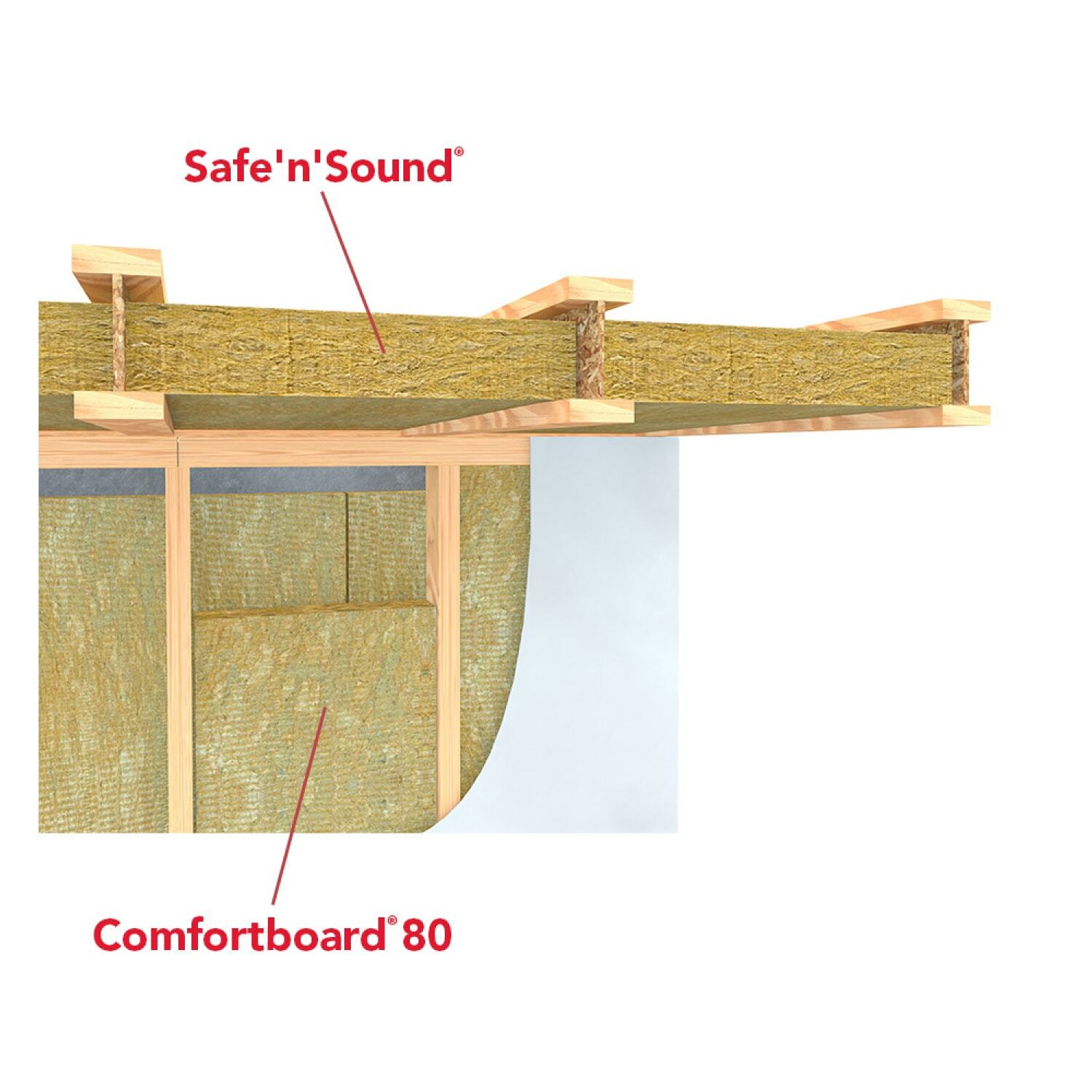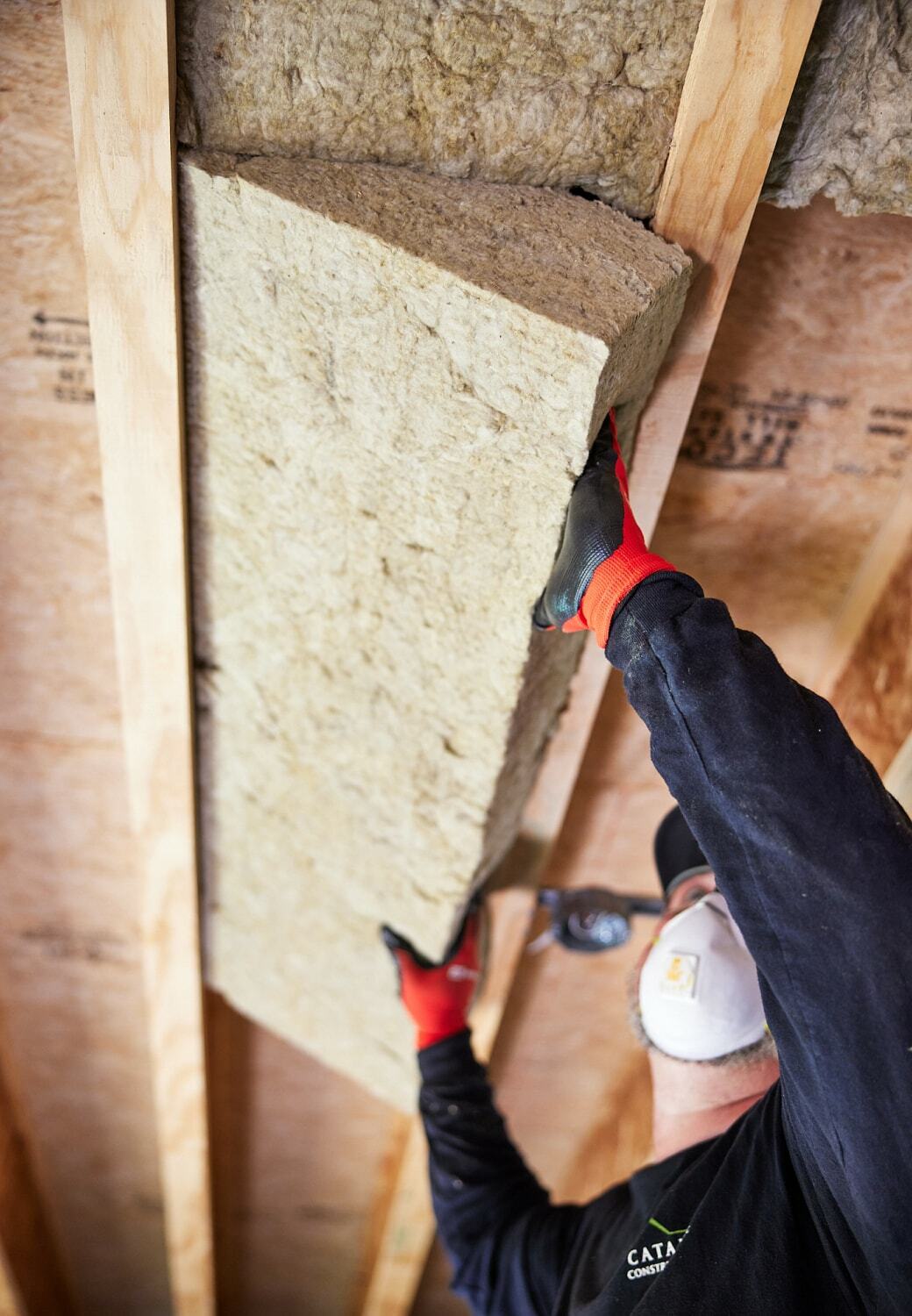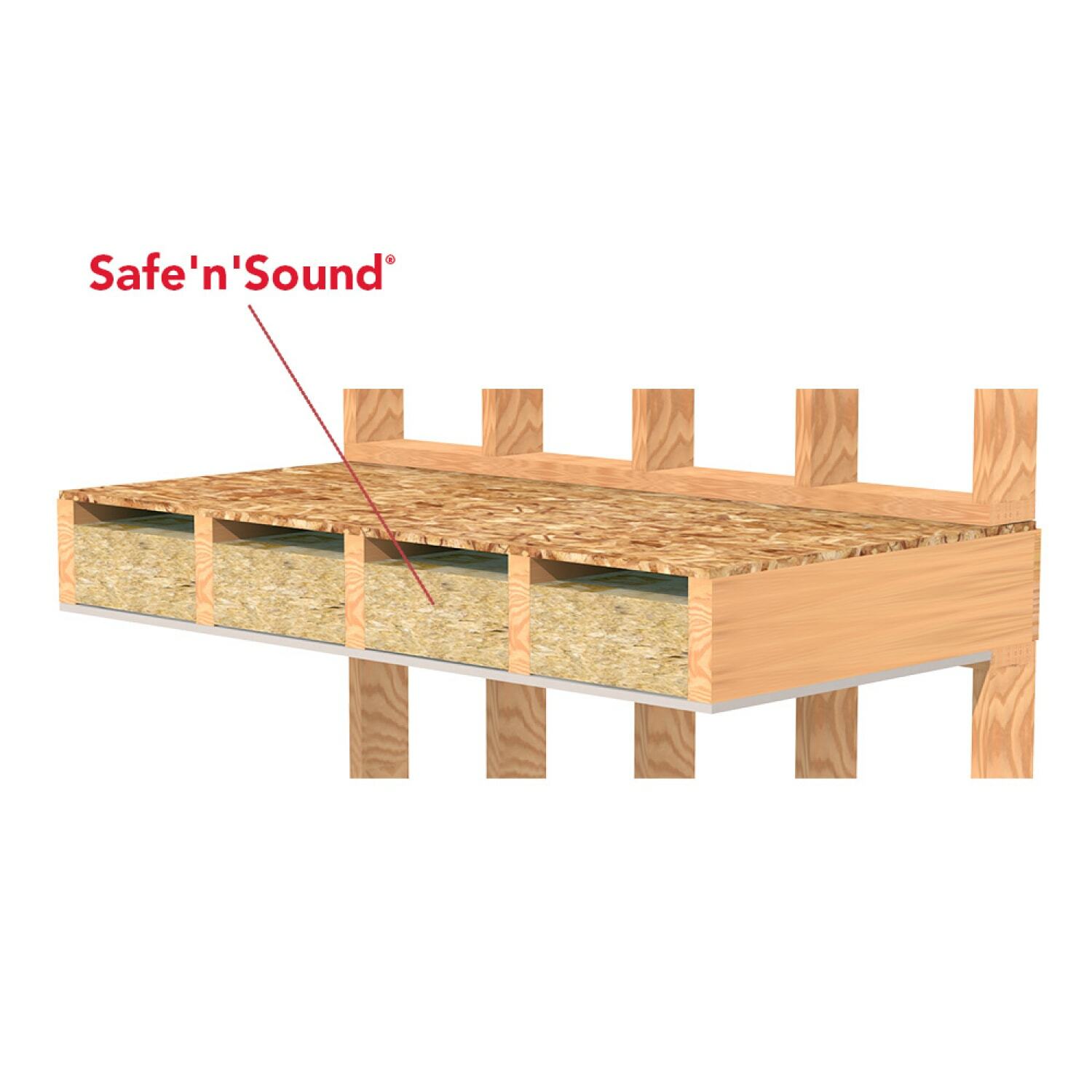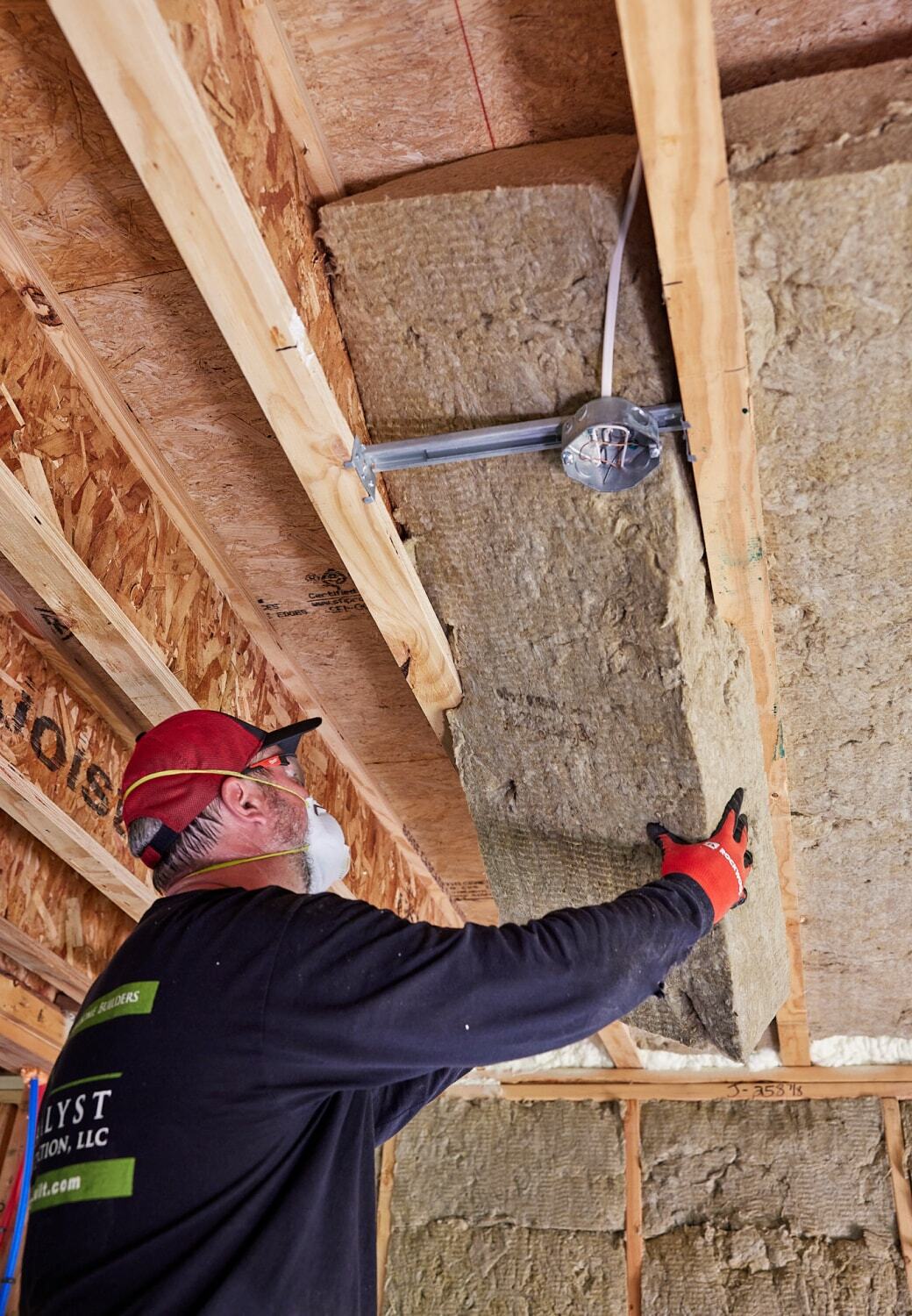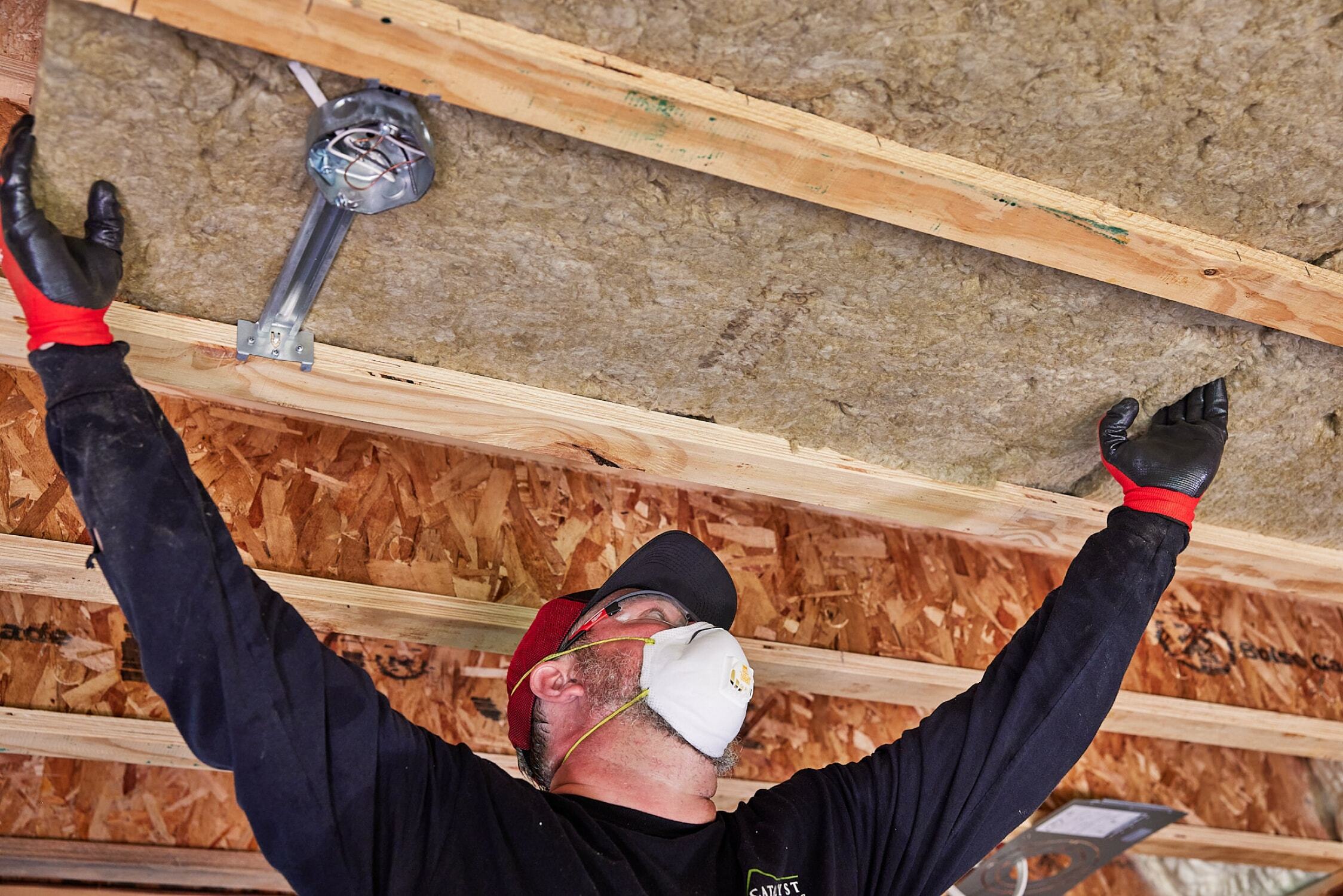Floors and Ceilings
Elevate comfort
Floor/ceiling insulation can help to create a more comfortable internal environment for those working or living in commercial and residential buildings. An essential part of any building structure — whether applied to suspended ceilings or basement and cellar ceilings — insulation is vital for retaining heat, reducing sound transfer and preventing fire from spreading.
Benefits
-

Noncombustible products can slow the spread of fire -

High density effectively reduces sound transmission -

Ease of cutting and fit around obstructions -

Moisture resistant – does not promote growth of mildew or mold
Application
I-joist
Soundproofing and fire separation are important design considerations
to benefit spaces above and below a wood-framed floor. Insulating in an
I-joist assembly can improve both the safety and comfort of the home
and its occupants.
Featured Product
Application
2x Joist Cavity
Soundproofing and fire separation are important design considerations
to benefit spaces above and below a wood-framed floor. Insulating the
floor assembly can improve both the safety and comfort of the home and
its occupants.
Featured Product
FAQ
What type of insulation is best for ceilings?
It depends on the type of ceiling and your primary goals. Ceiling panels are commonly used in commercial buildings, while slabs and rolls are best suited for suspended ceilings to improve acoustic performance and fire safety. For basement and cellar ceilings, products with strong thermal properties, high fire resistance and a finished surface are best.
Does ceiling insulation reduce noise?
Acoustic ceiling panels trap sound to reduce the amount transferred. This lowers the noise that passes between the floor and ceiling of adjacent rooms. Insulation slabs or rolls placed in the ceiling also prevent noise from passing from one room to the other.
What R-value insulation do I need for my ceiling?
Depending on the required performance level, insulation thickness can be adjusted to meet your thermal requirements. The higher the R-value, the better its thermal performance.
Contact a Sales Rep
Product knowledge & expert advice awaits
A ROCKWOOL representative will offer professional guidance on products and applications, tailored to your needs and budget.
Join the R‑Class
High-performance building starts now
The ROCKWOOL R‑Class Builder Program is 100% free. If you’re looking to level up to high-performance builds while building community, sign up today.

